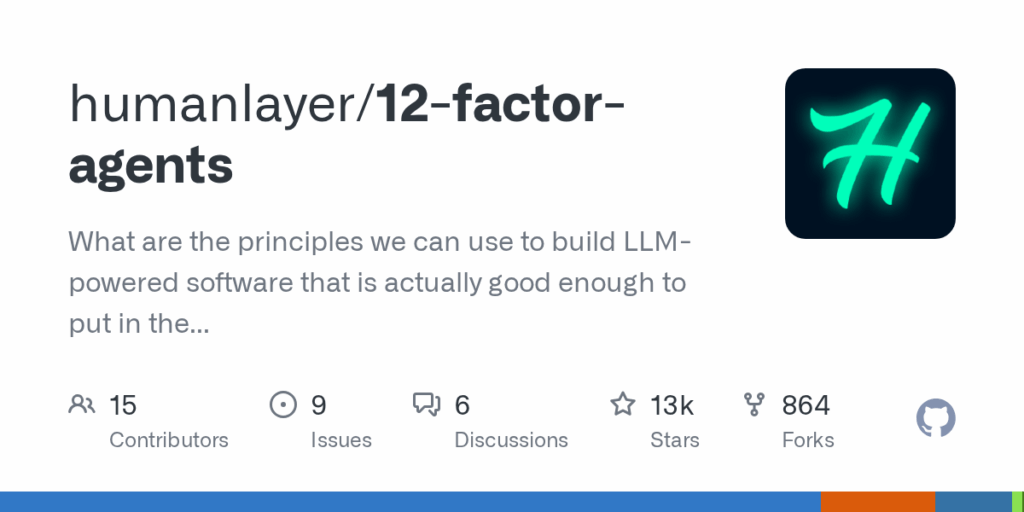12 factor agents
Basic Information
A public guide and reference of engineering principles for building reliable, production-ready LLM-powered applications. Inspired by 12 Factor Apps, the repository defines twelve practical factors covering topics such as converting natural language to tool calls, owning prompts and context windows, treating tools as structured outputs, unifying execution and business state, simple launch/pause/resume APIs, human contact via tool calls, owning control flow, compacting errors into context, small focused agents, triggering from anywhere, and making agents stateless reducers. It is aimed at engineers and technical founders who are integrating agentic behavior into existing products and want modular, maintainable patterns rather than wholesale framework rewrites. The repo collects factor writeups, diagrams, visual navigation, contributors notes, and related resources to help teams design and audit agent architectures.








